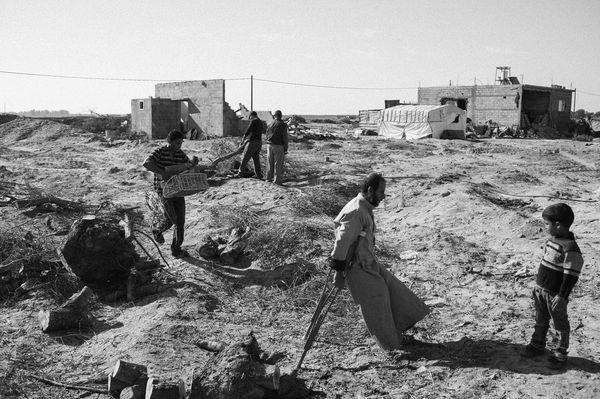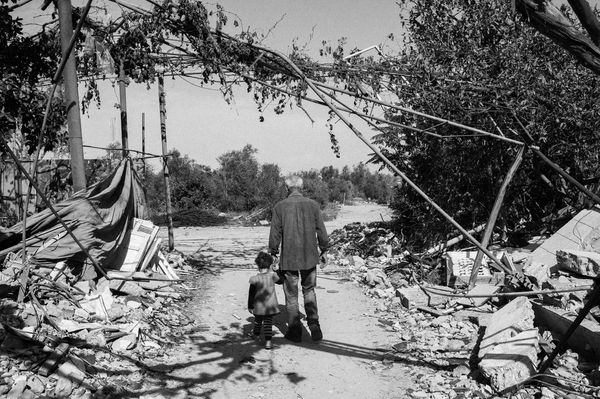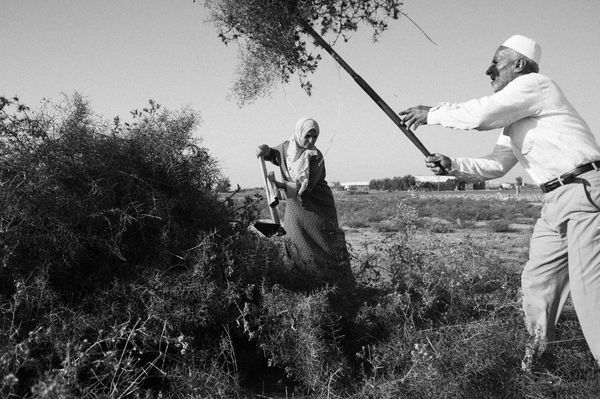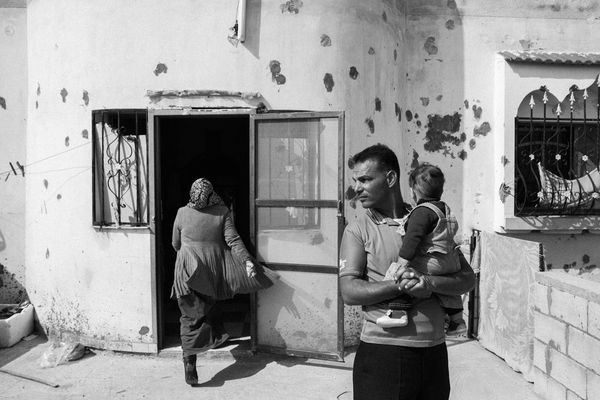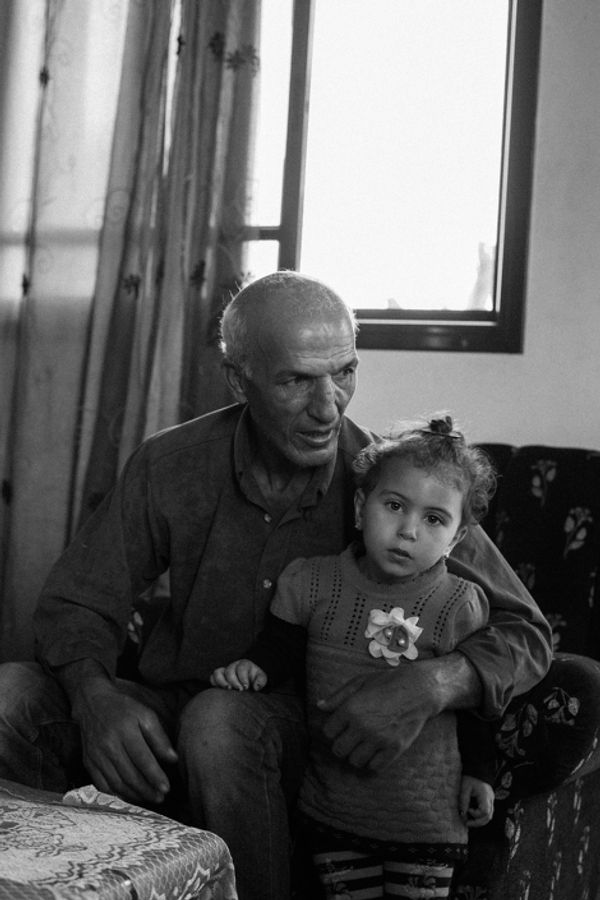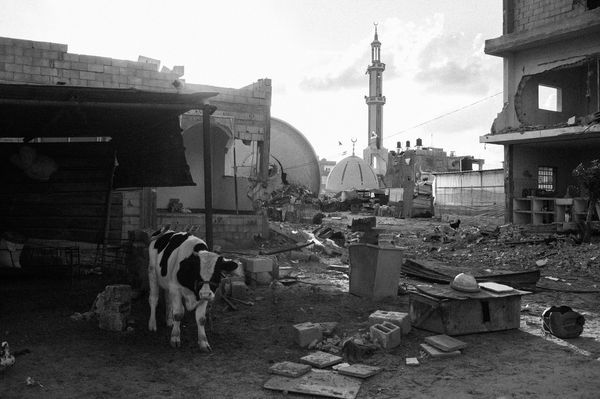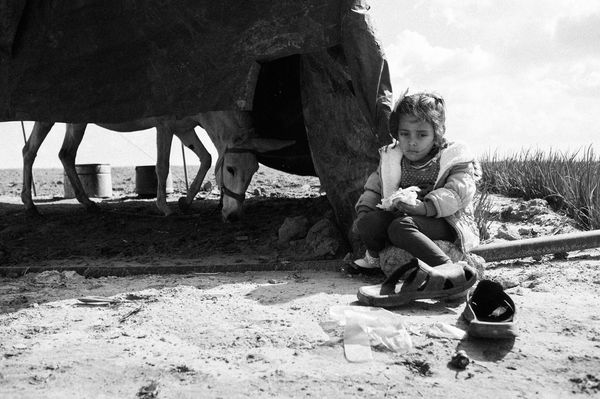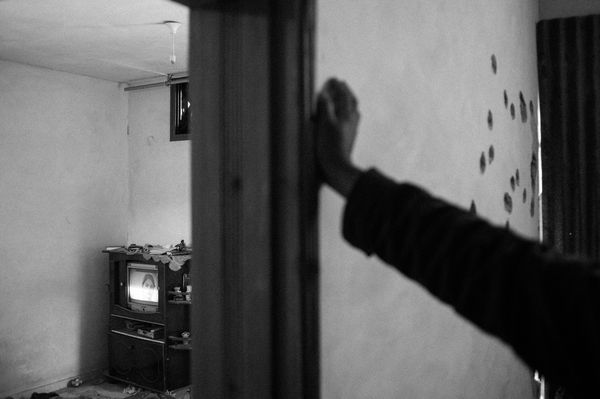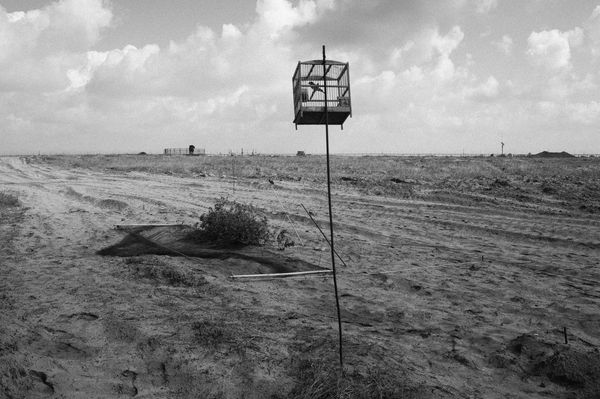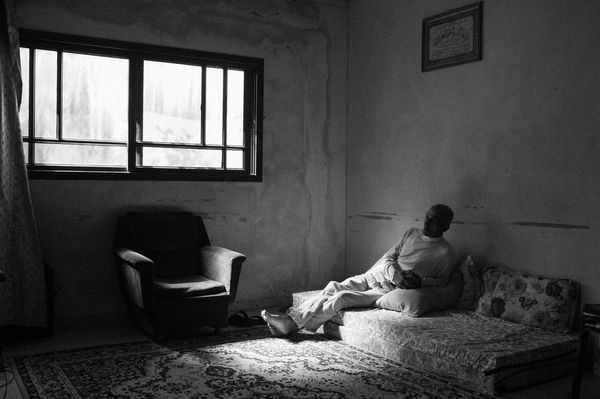Farming in Gaza - Aftermath of war
-
Dates2014 - 2014
-
Author
In the land from where the eyes can see the Israeli border, Palestinian farmers try to make their living producing agricultural goods such as strawberries, oranges, grapefruits, olives, various vegetables, etc.
In the land from where the eyes can see the Israeli border, Palestinian farmers try to make their living producing agricultural goods such as strawberries, oranges, grapefruits, olives, various vegetables, etc. The war in 2014, that lasted almost two months, has left the majority of Gazan farmers living in the buffer zone with their houses demolished or their land bulldozed – in worst cases, both. In 50 days long war that Israel called “Operation Protective Edge” more than 2200 Palestinian lives were lost and about 17.200 homes totally destroyed, after 20,000 tons of explosive had been dropped on Gaza.
After the war, I decided I should return to Gaza, to work with the same families I’ve worked with last year, and the comparison was devastating. Some neighborhoods were unrecognizable, leveled to the ground. Every morning before going to the field and re-meet the families, I had a very bad feeling in my gut, and it was usually there for a reason – almost all of the families have lost their home. They were forced to move to UNRWA schools and live in overcrowded classrooms, or other shelter homes. “I’ve been through dozens of wars, I’ve witnessed everything. Our home was always affected, but not to this dimensions,” Mohammed Abu Daqqa recalls. “But when I hear stories from others, I’m just thankful my family is alive,” he says.
Mohammad, whose home was bombed severely wanted to build a shelter in front of his house, but with the winter coming, they cannot stay outside.
Khalil Zaanin, a farmer and father of three, has told me, that after the whole Beit Hanoun area had to be evacuated, they found shelter with their friends in Gaza City. “I felt like I’m living in a 5 star hotel in comparison to the people who had to move to UNRWA schools,” Khalil recalls. Overcrowded classrooms, where several families live in less than 15 square meters, reminiscent of a prison.
Khalil’s farm was bulldozed and hit several times by F-16 missiles. His water well was ruined and it took him a month to repair it. During my 2013 visit in the same time of the year, Khalil and his workers were already harvesting the plants. This year, they have nothing to harvest. “It’s a life with no guarantees what so ever… whether you have plans or not, it doesn't matter,” says Khalil.
During this period of a year (November), it’s olive harvesting season. This year, instead of harvesting, Samir Al Daberi from Rafah, had to hire workers to help him cut and remove the completely destroyed olive tree plantation from his land.
“We’re just farmers. We know nothing about politics, we just farm,” mrs. Abu Ghazal from Beit Hanoun pointed out.
